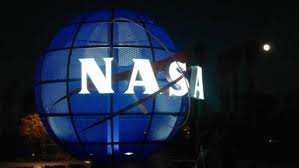
Breaking News
 Pentagon To Send 200 Troops to Nigeria
Pentagon To Send 200 Troops to Nigeria
 Trump Says He May Send Second Aircraft Carrier to Middle East To Prepare for Potential Attack...
Trump Says He May Send Second Aircraft Carrier to Middle East To Prepare for Potential Attack...
 A Market Crash and Recession Are Bullish, Not Bearish
A Market Crash and Recession Are Bullish, Not Bearish
 What Are They Still Hiding? New Epstein Questions Point to a Much Bigger Cover-Up
What Are They Still Hiding? New Epstein Questions Point to a Much Bigger Cover-Up
Top Tech News
 Drone-launching underwater drone hitches a ride on ship and sub hulls
Drone-launching underwater drone hitches a ride on ship and sub hulls
 Humanoid Robots Get "Brains" As Dual-Use Fears Mount
Humanoid Robots Get "Brains" As Dual-Use Fears Mount
 SpaceX Authorized to Increase High Speed Internet Download Speeds 5X Through 2026
SpaceX Authorized to Increase High Speed Internet Download Speeds 5X Through 2026
 Space AI is the Key to the Technological Singularity
Space AI is the Key to the Technological Singularity
 Velocitor X-1 eVTOL could be beating the traffic in just a year
Velocitor X-1 eVTOL could be beating the traffic in just a year
 Starlink smasher? China claims world's best high-powered microwave weapon
Starlink smasher? China claims world's best high-powered microwave weapon
 Wood scraps turn 'useless' desert sand into concrete
Wood scraps turn 'useless' desert sand into concrete
 Let's Do a Detailed Review of Zorin -- Is This Good for Ex-Windows Users?
Let's Do a Detailed Review of Zorin -- Is This Good for Ex-Windows Users?
 The World's First Sodium-Ion Battery EV Is A Winter Range Monster
The World's First Sodium-Ion Battery EV Is A Winter Range Monster
 China's CATL 5C Battery Breakthrough will Make Most Combustion Engine Vehicles OBSOLETE
China's CATL 5C Battery Breakthrough will Make Most Combustion Engine Vehicles OBSOLETE
NASA's Galactic Positioning System will enable autonomous spacecraft

Without this system it is not possible to determine a spaceship's location precisely enough to engine-firing just right to go into orbit around a distant moon.
With this technology, autonomous spacecraft could thread a needle to get into orbit around the moon of a distant planet instead of doing a flyby according to NASA scientist Zaven Arzoumanian. A galactic positioning system could also provide "a fallback, so that if a crewed mission loses contact with the Earth, they'd still have navigation systems on board that are autonomous."
When your phone tries to determine its position in space, it listens with its radio to the precise ticking of clock signals coming from a fleet of GPS (global positioning) satellites in Earth orbit. The phone's GPS then uses the differences between those ticks to figure out its distance from each satellite, and uses that information to triangulate its own location in space.
Your phone's GPS works fast, but Arzoumian said the galactic positioning system would work slower —taking the time needed to traverse long stretches of deep space. It would be a small, swivel-mounted X-ray telescope, which would look a lot like the big, bulky NICER stripped down to its barest minimum components.



